Animals
-
 Animals
AnimalsSome electric eels coordinate their attacks to zap prey
Electric eels were thought be to lone hunters — until researchers observed more than 100 eels hunting together. Their coordinated electric attacks corralled prey.
-
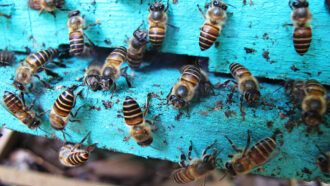 Animals
AnimalsHoneybees fend off deadly hornets by decorating hives with poop
Bees usually collect pollen and nectar. Scientists were surprised to find that Asian honeybees also gather animal dung to defend their hives.
By Asher Jones -
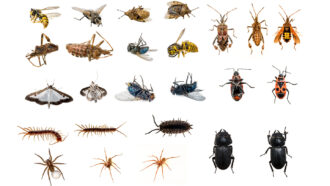 Animals
AnimalsExplainer: Insects, arachnids and other arthropods
Arthropods are all around us, but identifying them can be hard. To start, look at the four main groups: chelicera, crustaceans, myriapods and insects.
-
 Environment
EnvironmentCamels have been dying after mistaking plastic for food
Plastic waste has been building up in the guts of some camels. It may now be killing off one percent of them in the United Arab Emirates each year.
By Asher Jones -
 Animals
AnimalsAfrica’s poisonous rats are surprisingly social
Scientists confirm that the African crested rat can safely cover itself in poison and also find that the rodents may live in pairs — or even family groups.
-
 Animals
AnimalsTouching allows octopuses to pre-taste their food
Special sensory cells in their arms’ suckers sense chemicals. Those cells allow them to taste the difference between food and poison.
-
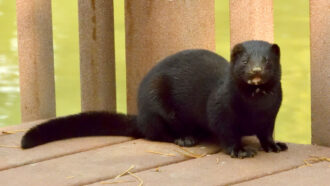 Animals
AnimalsUtah mink is first known case of the coronavirus in a wild animal
A wild mink appears to have picked up the novel coronavirus from farmed animals. Such spread in the wild does not appear common.
-
 Animals
AnimalsScientists Say: Lachryphagy
Some insects land on the eyeballs of larger animals. They are seeking out the salt and proteins in the animal’s tears.
-
 Animals
AnimalsLet’s learn about sharks
This ancient group of fish can use scent and even electricity to detect their prey. And they fill an important niche in the ocean.
-
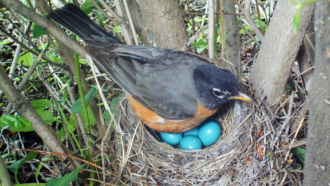 Animals
AnimalsScientists Say: Medullary bone
Medullary bone is a layer that forms inside bird and dinosaur bones. It’s a source of the calcium in eggshells.
-
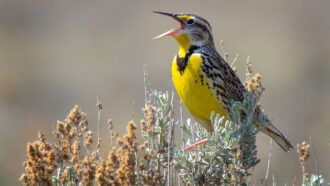 Animals
AnimalsAround the world, birds are in crisis
Human activities around the world are threatening bird species. Numbers of even some of the most common species are starting to fall.
-
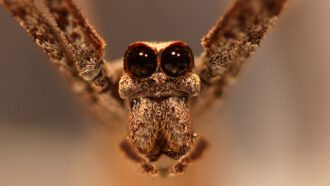 Life
LifeOgre-faced spiders listen closely to snatch bugs from the air
Ogre-faced spiders can hear prey sneaking around behind them. Low frequencies can trigger a blind, backwards attack.